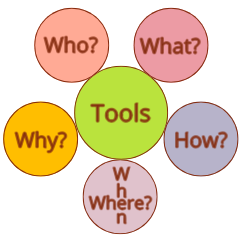Where/Study skills: Difference between revisions
robbiemcclintoc.org>Robbie m Robbie moved page Where.Study skills to Where/Study skills without leaving a redirect |
m 1 revision imported |
||
(No difference)
| |||
Latest revision as of 13:25, 3 November 2024
Study skills
Let's concentrate on the basics, the study skills that each and all have acquired. We can speak. We read and write. We use our senses, especially seeing and hearing, to perceive what's around us. Why should we stop now to study these? We've used them to come this far. Why not keep at matters where we're more thoroughly ignorant?
Life takes place 24/7. We are not born with an empty slate, so many blank spaces that we then fill in one by one with this or that — "Here's some empty time! I'll put study into it." That's a prescription for an if-only sense of life. We don't have time for something, or even find time for it; we take time to do something, and in taking time to study something we are basically taking time to improve doing it through recursive repetition. Let's study this proposition.
By taking time to do something, we mean bringing fuller attention to bear upon it, in this case attending to who, what, how, where_—_when, and why we are doing something in order to improve our doing it recursively. A degree of familiarity with what we are doing does not stand as a reason against studying it, but rather it serves as a necessary condition for studying it. That's why we have to say, to begin, begin. Our basic skills enabling our cultural activity are prime matters for study because we are using them throughout our lives and they provide ubiquitous opportunities for recursive repetition.
A Place to Study offers opportunities to apply our powers of judgment to out basic cultural skills. People often worry whether what they or someone else is saying is ethical or moral, asking whether it measures up to some abstract standard. Often we would do better to ask ourselves whether we would feel it appropriate, sound, or just to say it to any and all persons rather than to some special subset of people. . . .





